Search Images
Browse Content (p. 422)
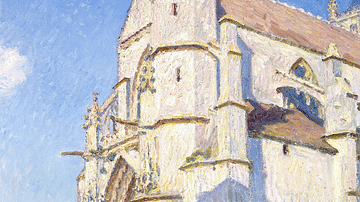
Image
The Church at Moret, Evening by Sisley
An 1894 oil on canvas, The Church at Moret, Evening, by Alfred Sisley (1839-1899), the Franco-British impressionist painter. Sisley painted this work at Moret-sur-Loing as part of a series to show the changing effects of light and colour...
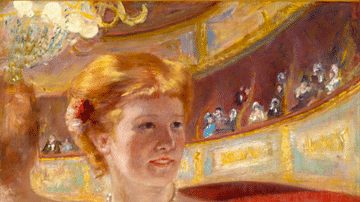
Image
Woman with a Pearl Necklace by Cassatt
An 1879 oil on canvas, Woman with a Pearl Necklace in a Loge, by Mary Cassatt (1844-1926), the American impressionist painter. In the 19th century, society still generally frowned upon women becoming artists, and so Cassatt, along with Berthe...
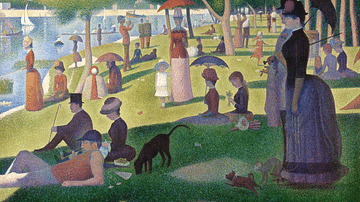
Image
A Sunday Afternoon on the Island of La Grande Jatte by Seurat
An 1884-6 oil on canvas, A Sunday Afternoon on the Island of La Grande Jatte, by Georges Seurat (1859-1891), the French pointillist painter. The Grande Jatte is a narrow island in the Seine near Paris, then a popular destination for day-trippers...
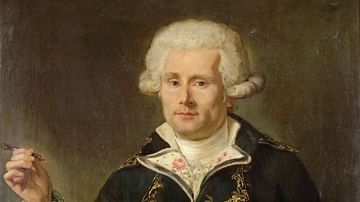
Image
Louis-Antoine de Bougainville
Louise-Antoine, Compte de Bougainville (1729-1811) was a French explorer and former army colonel, who was also a brilliant mathematician. He was a contemporary of Captain James Cook (1728-1779) and a protegée of Madame de Pompadour (1721-1764...

Image
The Route of the St Jean Baptiste and the Endeavour around the North Cape of New Zealand
The route of the St Jean Baptiste and Captain James Cook's Endeavour around the North Cape of New Zealand in December 1769.
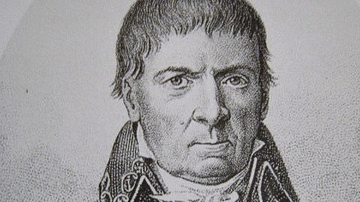
Image
Jean-François de Surville
Jean-François de Surville (1717-1770) was a French explorer and merchant captain. He sailed with the French India Company before serving in the French navy during the Seven Years' War (1756–1763). In 1767, he commanded the French ship St...
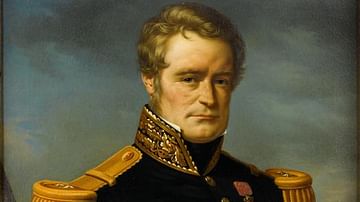
Image
Dumont d'Urville
Jules Sébastien César Dumont d'Urville (1790-1842) was born at Condé sur Noireau, Normandy, France. He was a French explorer and navigator who made three voyages of discovery to Aotearoa New Zealand between 1827 and 1840. Dumont d'Urville...

Image
The Comte d'Artois, Later Charles X of France
Charles Philippe de France, comte d'Artois (1757-1836), during the French Revolution, oil on canvas painting by Henri-Pierre Danloux, 1798. As the youngest brother of King Louis XVI, Artois was one of the first emigres to flee France after...
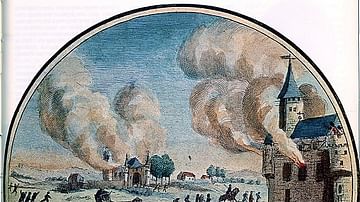
Image
The Great Fear
Image depicting the Great Fear, a general panic that swept France from late July to early August 1789, at the beginning of the French Revolution. Bands of peasants raided abbeys and seigneurial estates, refusing to pay tithes and forcing...
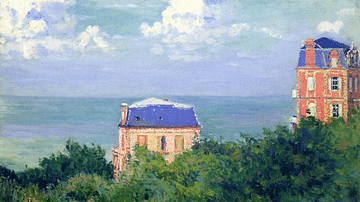
Image
Villas at Villers sur Mer by Caillebotte
An 1880 oil on canvas, Villas at Villers sur Mer, by Gustave Caillebotte (1848-96) the French impressionist painter. Even in this unlikely scene, Caillebotte manages to include a trademark diagonal. (Private Collection)